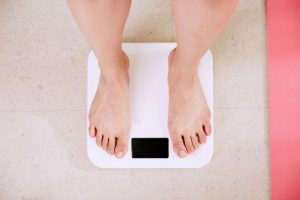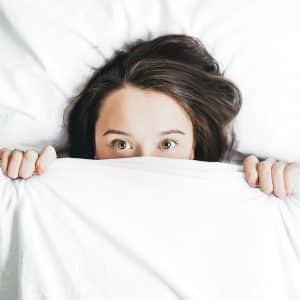We’ve all heard it: You snooze, you lose!

And it’s correct… depending on how you look at it. Sleep can help you to decrease several things:
- Weight
- Inflammation
- Risk of depression
- Stress
- Blood pressure
- Cholesterol
So really, even though it helps you to “lose” we think that overall these are better phrased as wins!
The Connection Between Sleep and Good Health
There is no one single way in which sleep benefits the body. Instead, as you can see from the list above, it is multi-faceted. For example, weight and depression may be related to inflammation. Reduce inflammation, and you can improve your weight and your mental health. Stress may be related to the high blood pressure. Reduce your stress, improve your blood pressure.
However, one way we know that sleep is absolutely pivotal to the body (directly) is because it’s while you sleep that your body is hardest at work repairing itself. If we reduce the amount of sleep we get, we are reducing the time we are allowing our body to do very important tasks that help to maintain our health.
Benefits of Sleep Stages
Most people are aware of the two main types of sleep: REM (rapid eye movement) and non-REM. However, there are four different stages of sleep that fall into that “non-REM” category, the last of which being deep sleep.
Non-REM
During the lighter stages of non-REM sleep is when scientists believe long-term memory consolidation occurs.
Deep sleep, another stage of non-REM, is important for several different processes in your body. For example, during deep sleep, your pulse and blood pressure both lower, which allows your heart and blood vessels a period of recovery. Muscles, organs, and other cells are also repaired during this time, and chemicals that boost your immune system begin to circulate throughout your body.
REM
REM is a very active cycle for our brain. It is also hypothesized to be important for consolidating memories. Research also links insufficient REM sleep to impaired coping and cognitive skills, migraines, and excess weight.
What Can Impact Your Ability to Fall or Stay Asleep?

- Hormones. Low testosterone in men and various hormonal imbalances in women can make it more difficult to fall or stay asleep. Many women experience disrupted sleep during menopause due to hot flashes and night sweats.
- Adrenals. Adrenal issues can stop you from falling asleep by leaving you feeling energized around bedtime, or can wake you up in the middle of the night (usually between 2am-4am) and make it difficult to fall back to sleep.
- Prostate health (men). The urge to urinate more frequently makes it harder to sleep through the night.
- Liver and gallbladder function. The liver and gallbladder may be the culprits if you find yourself waking up between 1-3am, and are able to eventually fall back to sleep.
- Musculoskeletal health. Poor musculoskeletal health can leave you waking up due to aches and pains.
- Blood sugar. Poor blood sugar control can cause you to wake up about 4-5 hours after you go to bed. Typically, if this is the issue, it will take about 1-1.5 hours to fall back asleep.
- Neurotransmitter issues. Issues with neurotransmitters can cause your mind to race, which prevents you from falling asleep. If you find yourself perseverating (repeating an action or thought even after whatever prompted it has stopped), this is another sign of neurotransmitter problems.
- Stress. You’ve probably discovered at some point in your life that when you are under a lot of stress, you have a hard time sleeping. Often, people find that they wake up early and are unable to fall back asleep as their to-do list begins to take over their thoughts.
Tips for Improved Sleep
- Consistency. Aim to go to bed at the same time each night.
- Routine. Create a nighttime routine that leads up to your designated bed time. This helps your body learn to wind down and prepare for sleep.
- Settled stomach. Finish your last meal or snack 2-3 hours before bed. If you find you do need a snack before bed and that it leads to better sleep for you, aim to eat something low in sugar that contains a bit of protein and fat, which will help you to feel satiated.
- Go screen-free. Turn off the electronics 1-2 hours before bed.
- Cool off. Set your thermostat to a comfortable temperature. In general, people sleep better when the room is a bit cool.
- Turn it down. Make sure your room is dark and peaceful (whether that means quiet, using white noise, or soft music is up to you!)
- Breathe deep. Once you’re in bed, practice deep breathing. The 4-7-8 method is a great place to start. Breathe in for a count of 4, hold for a count of 7, and then breathe out slowly for a count of 8. Repeat for several minutes (we’d recommend doing it at least 6-7 times).
Actions for better sleep don’t just have to happen in the evening, either. There are several things you can do during the day to help your sleep quality at night:
- Seek nature. Get exposure to natural sunlight. This helps to regulate your body’s circadian rhythm.
- Increase movement. Studies show that exercise during the day can, over time, improve your sleep at night. Timing can be important too: aim to finish your exercise at least 3 hours before bed.
- Cut the carbs. No, not all carbs. BUT, decrease your sugar and refined carbohydrate intake.
- Cut the caffeine. Limit your caffeine intake and make sure you keep it to just the morning.
If you feel like you’ve tried everything and still have a hard time falling or staying asleep, schedule an appointment with Dr. Aaron or Dr. Rob to discuss whether there may be an underlying root cause preventing you from getting your optimal sleep. You can contact our office at 952-949-0676.


